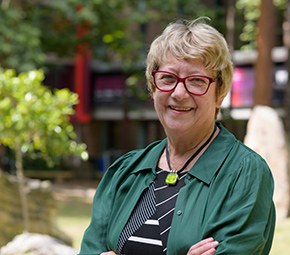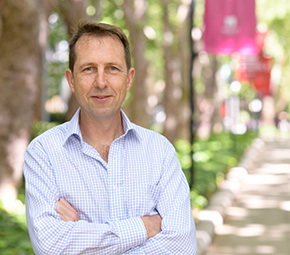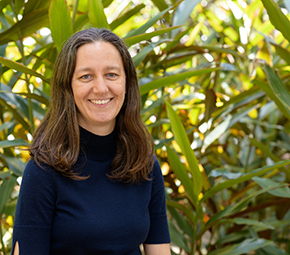The NSW Premier’s Prizes for Science & Engineering was held last week with three Macquarie academics claiming top honours. Held by the NSW Government to celebrate the achievements of the State’s finest, Premier Gladys Berejiklian said the Prizes were an opportunity to acknowledge the extraordinary contribution NSW scientists and engineers make to our everyday lives. Find out more about all winners here.
Category 1: Excellence in Mathematics, Earth Sciences, Chemistry or Physics Winner:
Distinguished Professor Sue O’Reilly AM Sue’s research is enabling the discovery of critical metals, including rare-earths, nickel, copper and platinum group elements hidden deep underground in Australia and globally.
Sue’s research is enabling the discovery of critical metals, including rare-earths, nickel, copper and platinum group elements hidden deep underground in Australia and globally.By analysing zircons found on the surface she has produced a tool for identifying deep mineral deposits. The tool, patented as TerraneChron®, is being used by mining giants including BHP, Anglo American, Codelco, Vale and Rio Tinto to significantly speed up exploration and detection.
Category 2: Excellence in Biological Sciences (Ecology, environmental, agricultural and organismal) Winner:
Distinguished Professor Ian Wright Ian has made major contributions to plant science research, nationally and internationally. He is best known for global-scale analysis of plant traits, for careful quantification of plant structure-function relationships and for using concepts from economics to understand plant ecology and evolution.
Ian has made major contributions to plant science research, nationally and internationally. He is best known for global-scale analysis of plant traits, for careful quantification of plant structure-function relationships and for using concepts from economics to understand plant ecology and evolution.
His work underpins the ability of scientists to ask novel, high-priority questions: Which plants will be winners and losers in NSW after climate change? How will our forests change and how will that affect fire risk? What Australian species have useful properties for crop improvement under future warmer and drier climates?
Category 5: NSW Early Career Researcher of the Year (Biological Sciences) Winner:
 As an ecologist, Rachael is playing a critical role in the recovery of Australian plant species impacted by the devastating 2019-2020 bushfire season. More than 80 per cent of Australia’s plant species occur nowhere else on Earth and their protection and recovery post-fire is a matter of global importance for biodiversity.
As an ecologist, Rachael is playing a critical role in the recovery of Australian plant species impacted by the devastating 2019-2020 bushfire season. More than 80 per cent of Australia’s plant species occur nowhere else on Earth and their protection and recovery post-fire is a matter of global importance for biodiversity. Rachael has a long-standing interest in understanding the diversity and function of the Australian flora. In her research, she uses data science approaches to combine location data from digitised herbarium specimens with information on their functional traits, to map and analyse patterns of plant diversity.